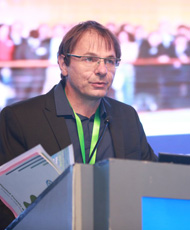 |
Shireen Chambers FICFor is the Executive & Technical Director of the Institute of Chartered Foresters (ICF). Shireen took up her current role in 2006. She studied forestry and soil science at Bangor University before embarking on a career overseas, working with the Government of the Bahamas to set up a new forestry department in the 1980s. She returned to the UK to work with the Central Scotland Forest and continued as a practitioner in community and urban forestry throughout the UK. Non-executive board appointments have included Macaulay Land Use Research Institute, Forest Research, Forestry Commission’s Regional Advisory Committee for Mid-Scotland (Chair), Edinburgh Green Belt Trust and she was a member of the Independent Panel on Forestry in 2012. Shireen was appointed chair of TREE AID board of trustees in 2017. |
 |
Catherine Bastien is the head of the Forest, Grassland and Freshwater Ecology Division at INRA after a career as Senior Scientist in Forest Genetics and tree Breeding in Biofora INRA research unit in Orléans, France. She is developing research on genetics of complex traits and methodology of short and long selection with major application on Scots pine and poplar national breeding programmes. For fifteen years, she is deeply involved in national and European research projects on management of natural and cultivated forest genetic resources. She presently coordinates H2020 B4EST project which aims to develop and promote adaptive breeding for productive, sustainable and resilient forests under climate change. |
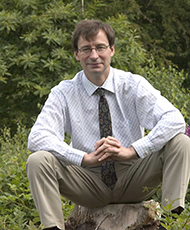 |
Peter Freer-Smith is currently leading an EFI From Science to Policy review entitled “Plantation Forests in Europe; Challenges and Opportunities” and is engaged in research on the use of biomass to meet California’s air quality and climate objectives. He is a Research Fellow for Forest Research UK, is Deputy Coordinator of the IUFRO Task Force “Sustainable Planted Forests for a Greener Future” and is on the California, Board of Forestry & Fire Protection, Effectiveness Monitoring Committee. |
 |
Martin Greimel is leading the Bioeconomy centre at the University of Natural Resources and Life Sciences Vienna. He is Austrian expert to the H2020 Programme Committee in Societal Challenge 2. He has been a civil servant at the Austrian Ministry for Sustainability and Tourism where we was responsible for international cooperation in the field to forestry research. He was coordinator, deputy coordinator and partner in several ERA-NET and other EU Framework Programme initiatives related to bioeconomy and forestry research. From 2004 till 2006 he was a National Expert at the European Commission in the DG Research; Directorate Biotechnology, Agriculture and Food Research.
|
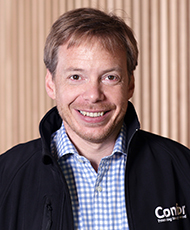 |
Andrew Heald is the Technical Director for Confor. He has over 20 years’ experience in forest and plantation management, and has worked in the UK, Finland, Uruguay and Ghana. Confor is a trade body representing 1,500 numbers across the UK forestry and forest products sector. Andrew sits on the Board of Directors of the UK Woodland Assurance Standard, and was the Coordinator for the Economic Chamber at the most recent FSC International General Assembly in Vancouver. He also works as a Consultant with WWF International helping deliver New Generation Plantations, a multi-stakeholder platform to help people learn about better plantation management though real world experiences and influence others to follow good examples. Andrew is a Member of the Institute of Chartered Foresters, and spends far too much time on Twitter @andyheald. |
 |
Professor Alison Hester (James Hutton Institute) has an international reputation in biodiversity research, with a particular focus on drivers of change in forest and upland systems. Much of her research addresses multifunctional land management, including synergies and conflicts between natural capital targets and other demands. Alison is Chair of the Natural Capital Initiative and serves on many other Committees including ALTER-Net Council, Europe’s Ecosystem Research Network. She is a Fellow of the Royal Society of Biology and an Honorary Fellow of the Royal Scottish Geographical Society. |
 |
Anna Lawrence is a Professor at the University of the Highlands and Islands, a chartered forester and independent consultant with thirty years of international experience. She led the Human Ecology research team at Oxford University 2001-2008, and was Head of Social and Economic Research at the UK’s Forestry Commission 2008-2015. She has voluntary roles on committees and boards which contribute to rewilding, community woodlands, accountable forest policy, and land reform in Scotland. |
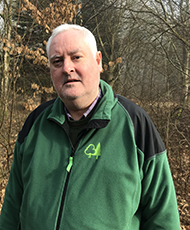 |
Robert Matthews is a Science Group Leader at Forest Research in the UK. His Group has been active in analysing policy and industry practice involving forests and their management, aiming to achieve a balance between sustainable wood production and carbon sequestration in support of climate change mitigation, whilst also balancing these objectives with the wider ecosystem services provided by forests. |
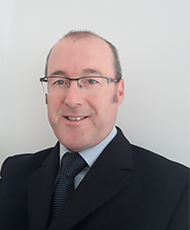 |
Fergus Moore is Senior Inspector at the Department of Agriculture, Food and Marine and heads up the Forest Sector Development Division. He has worked in a wide range of areas in the forest sector including harvesting, establishment, scheme implementation and forest policy development. His current work includes the development of the forest sector and the contribution of forests to climate change mitigation and adaptation. |
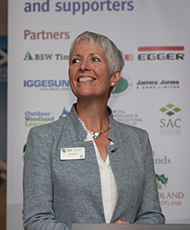 |
Jo O’Hara is Chief Executive at the Scottish Forestry. She is experienced leader with a demonstrated history of working in government and land-use sectors. A senior and influential chartered forestry professional skilled in policy and strategy, change management, rural development and sustainable management of natural resources. |
|
Christophe Orazio is the Head of the Planted Forests Facility. He has been coordinating numerous projects related to sustainability and risk management in planted forests. He has direct linkage with forest owners and stakeholders. Currently, he is coordinating the implementation of research infrastructures on climate change from north UK to south Portugal (REINFFORCE), and a project about risk management on planted forest, PLURIFOR. He coordinated the foresight case study and landscape modelling of a large forested area of planted forest for the INTEGRAL project assessing a large set of ecosystem services. He is also connecting forest management to Bioeconomy working on breeding income in GENTREE project, on forest management for resin production in SUTFOREST+ and sustainability of timber building from the seed to the beam. Since 2015 he coordinates the IUFRO task force Sustainable Planted Forests for a Greener Future. |
|
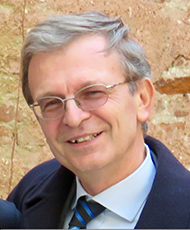 |
Davide Pettenella is full Professor at the at Land, Environment, Agriculture and Forestry (TESAF) at University of Padova (Italy) where is the director of the PhD School Land, Environment, Resources and Health (LERH). His professional focus is on forest products and services economics, with a special interest on the new markets for NWFP and forest services and the related CSR and ethical aspects in regulating the forestry sector and in creating new responsible markets. |
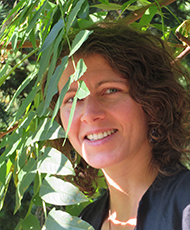 |
Elisabeth Pötzelsberger is Senior Scientist at the Institute of Silviculture at the University of Natural Resources and Life Sciences, Vienna (BOKU), with a background in Ecology and Forestry. From 2016 to 2018, she was coordinator of the EU-COST Action on ‘Non-native tree species in European forests: Experiences, Risks and Opportunities’, a network of 36 European countries. Her research focuses on the growth potential and management of non-native tree species in Europe, especially Douglas-fir and tree-of-heaven, and furthermore on native and non-native tree species management in Ethiopia. Another field of expertise is mechanistic ecosystem modelling to answer questions on the influence of tree species choice, forest management and climate change and the carbon, water and nutrient cycling. |
 |
Bill Slee is a social scientist with 40 years of teaching and research experience in Plymouth, Aberdeen and Gloucestershire. He directed the CCRU and led a science group at the James Hutton Institute. He is active in rural development research, especially in social innovation, community energy, rural economic diversification and policy evaluation, often for the ENRD Contact Point (recently on Smart Villages). He works on the H2020 SIMRA project and in third sector activity in his home area. |
 |
Margarida Tomé is Professor at Instituto Superior de Agronomia, Universidade de Lisboa, where she teaches Forest Resources Inventory, Forest Modelling and Forest Management. She coordinates the Forest Ecosystem Management under Global Change Group (ForChange), one of the research groups of the Forest Research Centre (CEF) at the School of Agriculture, University of Lisbon that has the aim to develop scientifically sound methods for Atlantic and Mediterranean forest ecosystem management. The group has a strong focus on the transfer of knowledge to end-users by developing technological applications that integrate and make useful the research results. Planted forests, with exotic or native tree species, have been an important research topic of the group. She has a record of more than 200 publications, from which 43% referenced in ISI, and supervised 14 Ph.D and several Msc thesis. She has been strongly involved with EFI, as well as with IUFRO. |
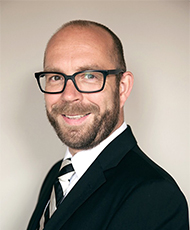 |
Hans Verkerk is principal scientist in the Bioeconomy programme of the European Forest Institute (Finland) and he leads a team on smart forestry. He holds a MSc degree in Forest and Nature Management from Wageningen University and obtained his PhD degree with distinction from the University of Eastern Finland. He has been involved in studies on European forest resource assessments, woody biomass availability, forest ecosystem services and climate change impacts and mitigation. |
